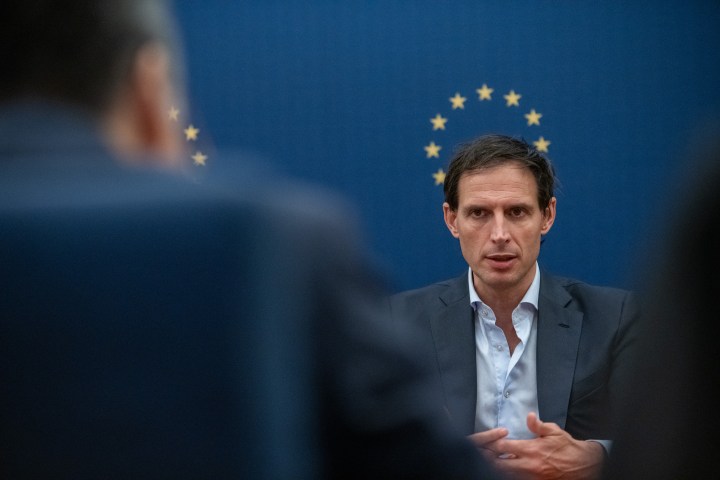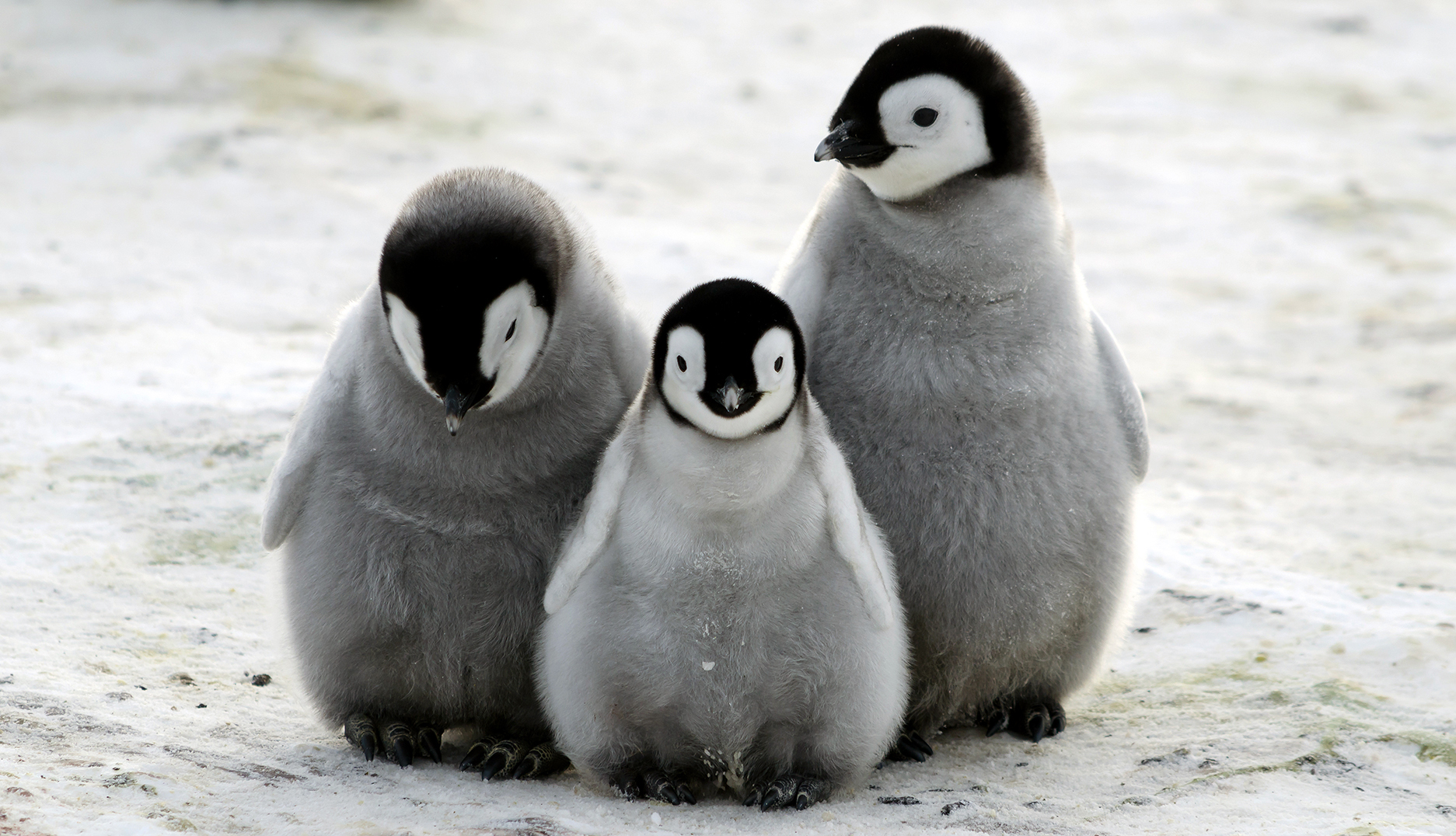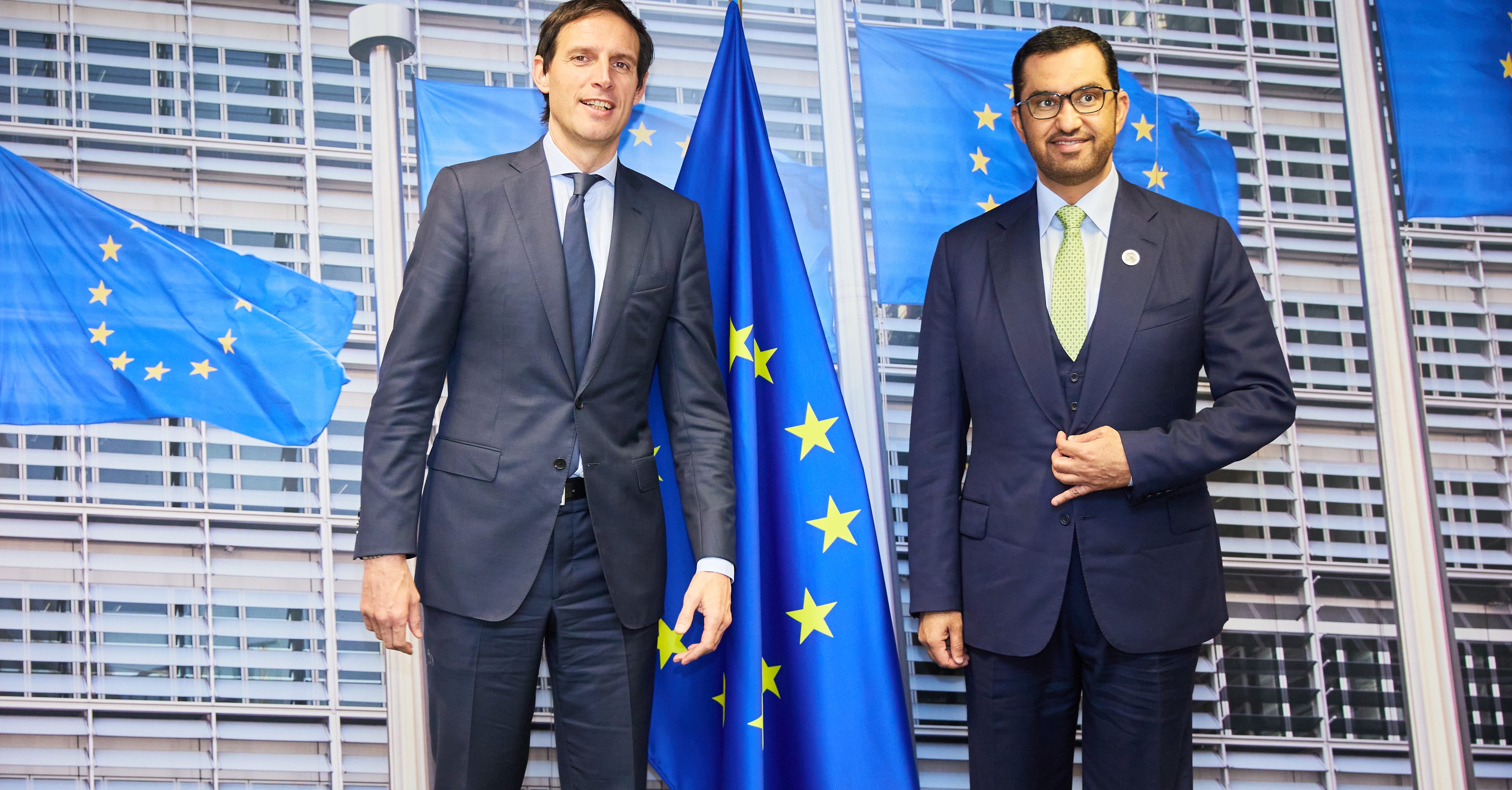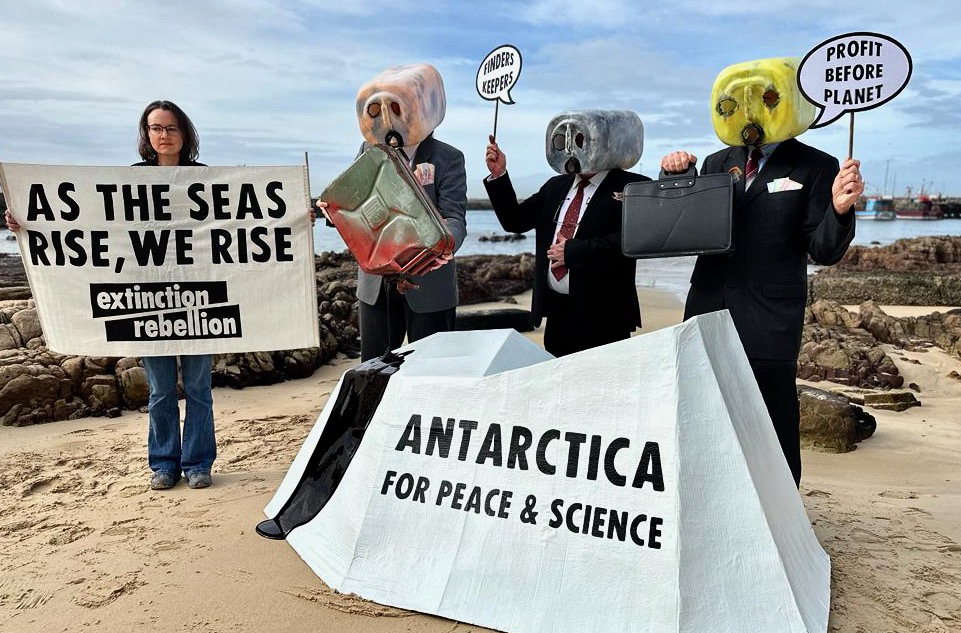ROAD TO COP28
Former fossil fuel executive, now EU’s climate chief, insists Big Oil’s days are numbered

Asked about hydrocarbons around Antarctica, and if COP28 could commit never to extract those likely large deposits, Europe’s most senior climate official told Daily Maverick it was time to 'phase out' fossil fuels, especially coal.
Capping Antarctica’s months of ice lows is a controversial venue choice for Earth’s most important climate meeting — one that may seem unserious to many when humanity is hanging on to 1.5C by its fingernails. For two weeks from 30 November, the Conference of the Parties (COP) from about 200 countries, and a large corps of oil executives, will descend on the air-conditioned halls of Dubai — a city built upon the spoils of the fuels that may have already written the ice caps’ epitaph.
South African President Cyril Ramaphosa and Environment Minister Barbara Creecy will join other high-level officials there, the minister’s office notes.
Yet as states argued semantics at COP27 in Egypt last December, nearly 10,000 emperor penguin chicks quietly drowned in the melting Southern Ocean at the bottom of the world. While some governments haggled over whether fossil fuels should be “phased down” or “phased out”, certain areas within the Bellingshausen Sea region experienced a 100% loss of ice.
Speaking to a small press briefing including Daily Maverick, Wopke Hoekstra, EU commissioner for climate action, conceded that achieving an ambitious agreement at the upcoming COP28 would be tough. For starters, Hoekstra — a Dutch politician who held roles at Shell and McKinsey from 2002 to 2017 — cited the “difficult geopolitical context” as a possible stumbling block.
Conflict chronicles
That is code for a rogue’s gallery of wars and simmering tensions with the potential to creep into Dubai: Hoekstra mentioned the Russians “horrible war” in Ukraine and Indo-Pacific friction.
“It is a great power rivalry between the world’s largest players,” he says, and “the backlash we face against international institutions, the rule of law, human rights, democracy itself, where I feel we need to push back on the pushback.” (He would not be drawn on the recent Dutch elections, which voted in the far-right party of Geert Wilders.)
And, just up the drag, there is the bloody, tragic Israel-Gaza conflict, which called a four-day truce on Friday.
“It is extremely difficult to come to an ambitious agreement, and yet it is also more necessary than ever because the challenge ahead of us is tremendous, and scientists are crystal clear that we have no time to waste,” says Hoekstra, who served as both Dutch finance minister and foreign minister before taking up the post as the EU’s top climate envoy in October.
The emperors have no ice
In fact, if we are talking about heeding scientists, the world’s largest outdoor laboratory is down there in Antarctica, and the data whisperers of the ice have been particularly vocal, and stressed, in this polar annus horribilis.
From Australia, scientists warned that historic sea-ice lows may have hit a new normal. And, with business-as-usual, the Antarctic’s nutrient-carrying conveyor belt would probably slow by 2050 and possibly collapse. All of which has to make us wonder about Russia’s unhidden and largely unchallenged search for Southern Ocean oil and gas aboard its Akademik Alexander Karpinsky via Cape Town port — flagged in a June 2023 EU report.

Three emperor penguin chicks huddling together. The species is threatened by climate change more than any other factor. (Photo: iStock)
Daily Maverick asked Hoekstra whether he was sanguine about the Antarctic Treaty system’s ban on mining activities, which is subject to potential review after 2048. Or was there a case in Dubai for an immediate commitment never to extract the likely large deposits off East Antarctica’s sedimentary basins — as peer-reviewed governance academia have argued?
Those reserves would not be straightforward to extract, and it is unclear how much is recoverable, but the 1970s Arab-Israeli conflict previously spawned an unratified Antarctic mining pact (signed by, among others, six EU states).
“We’re finding new oil and gas opportunities in a range of places across the world, sometimes that is on land, sometimes that is offshore,” Hoekstra concedes.
“A couple of decades ago people might have thought this is a great business opportunity — we now know this is actually very detrimental to our planet, because there is a 100% causality between pumping more CO2 and other emissions into the air and the boiling of our planet,” he says. “That is why we should actually do the exact opposite and phase out fossil fuels and coal, in particular, as quickly as possible.”
Maybe the world could not afford to pick and choose ambitions, but this is precisely what happened at recent COPs.
Here, efforts to phase out fossil fuels, especially coal, emerged as the biggest loser, but Hoekstra emphasised that “we simply do not have the luxury” of treating climate solutions like an à la carte menu.
We pressed on, asking Hoekstra about the critical significance of the threatened Greenland and Antarctic ice sheets and their link to rising sea levels, especially in low-lying economies.
UN Secretary-General António Guterres returned from Antarctica on Saturday, so we also asked Hoekstra to clarify the EU’s greenhouse gas (GHG) emissions reduction plans to combat accelerated melt, and the 27-member bloc’s plans for hydrocarbon exploration in the polar regions.
In Antarctica, I saw for myself & heard from scientists how ice loss is accelerating in dangerous ways.
Climate change is wreaking havoc. Fossil fuels are the main culprit.
At #COP28, leaders must act to limit global temperature rise to 1.5°C & end the fossil fuel age. pic.twitter.com/fvqABUfE3k
— António Guterres (@antonioguterres) November 25, 2023
“I’ve been living most of my life below sea level. And so I do have a bit of an understanding of what it means if the sea level rises even more — not only [in the Netherlands] but also through small island developing states and living in the Caribbean,” he says.
To slow rising seas, he stresses EU goals “for tripling renewables, doubling energy efficiency and more emission targets for methane. We have to make sure the world finally gets its head around things like an aviation tax and make sure we free up more money.
“We have to make sure we get the whole world on the trajectory of carbon markets as something that is roughly similar to the Emissions Trading Scheme we have in Europe. We need all these things and more.”
The ‘phase out’ vs ‘phase down’ fight
What we can learn from Hoekstra is that he does advocate for an actual phase out of fossil fuels, particularly coal.
The commissioner can even lay claim to knowing something about living in a low-lying coastal zone. (He, and about 700-million others, says the IPCC’s special ocean and cryosphere report.)
But he refrains from expanding on the call for an unchangeable Antarctic mining ban, or a rapid end to Arctic oil, and his position echoes the bloc’s policy. Issued in October 2021, the polar policy recognises that “climate change is the most comprehensive threat the Arctic is facing and has reached an unprecedented crisis point”.
The policy aims to keep oil, gas and coal in the ground, even in Arctic regions, but the bloc, which aims for carbon neutrality by 2050, is still importing hydrocarbons from the icy north.
This and previous COPs foreshadow what is likely to end up in Dubai’s final agreement.
Neither COP26 nor COP27 agreed to an all-out phase out, let alone a rapid one.
A “phase out” means ending fossil fuels with greater urgency, but an India-instigated “phase down” is a gradual cutback that establishes less rigorous timelines for reaching net-zero emissions. While some might view this as a cop-out, it does necessarily ensure a stable energy supply during a just transition. Carbon capture tech complements a phase-down approach.

Wopke Hoekstra (left), European Commissioner for Climate Action, meeting with COP28 President Sultan Al Jaber in Brussels on 13 November. (Photo: Claudio Centonze / European Union, 2023)
And, for anyone who needed confirmation, COP28 president Sultan Al Jaber, head of the UAE’s national oil company Adnoc, is on record that he will not be leading a coup for the phase-out camp.
However, Al Jaber is also a 2006 co-founder of Masdar, a UAE renewables company that claims it has a goal to reach 200 gigawatts capacity, so his COP might also seek to position itself as a clean-energy breakthrough — tempered by potential oil trade-offs.
Speaking up for Antarctica
Meanwhile the Karpinsky, the Kremlin seismic blaster that has never stopped doing “legal scientific research” on Antarctica’s oil and gas potential, heads back to the Southern Ocean in 2024.
A seminal 2022 report by the Scientific Committee on Antarctic Research handsomely tackles the region’s climate challenges, but June’s annual meeting of Antarctic states produced the non-binding Helsinki Declaration, which reaffirms the status quo, and basically does nothing to stop another 10,000 penguin chicks hurtling into the Bellingshausen Sea while world leaders hobnob in Dubai.
Humanity, the IPCC warns, has just six years to halve GHG emissions and stay within a liveable 1.5C threshold.
So, it will be up to Hoekstra and co at COP28 to advance Antarctic interests — and flag the suffering, unsettled weather and disrupted food security of failing to do so.

Posing as oil executives in Kalk Bay, Cape Town, on 6 June, Extinction Rebellion protests against Russia’s ‘scientific’ prospecting missions in the Southern Ocean through its mineral explorer, Rosgeo. The protest was held during June’s Finland-hosted Antarctic Treaty consultative meeting. (Photo: Ethan van Diemen)
“The last thing I would want to do now is lean back and forget about 1.5C … every quarter degree simply means higher sea levels, more droughts, more floodings, and billions of additional costs, and of course, you know, the suffering of humanity and the planet at large,” he says.
Is this the type of language that will move Dubai’s onslaught of oil executives? A climate negotiator who has spent time at the coal face may be well placed to answer that.
“Whenever someone, particularly one of the main emitters, makes a significant step forward in terms of delivery or resetting its ambitions, that immediately does something to the whole equation.”
South Africa’s dubious distinction
As part of the bloc’s broader COP28 goals, Hoekstra wants a proactive global stocktake — the first after the Paris Agreement — that ramps up country contributions to mitigation and adaptation.
“This is not just taking stock in the sense of taking a picture of the situation and then moving on. It is taking stock and coming up with actions to do more. And it would be my ambition to make sure we arrive at the whole world peaking in 2025 and then having the curve go down, rather than plateauing after [that year],” he points out. “It would also imply very ambitious language on phasing out fossil fuels in general.”
While admitting that “proactive” measures could “take longer than just COP28”, he emphasises that responsibility for financial investment should be based on current wealth, “leapfrog” capabilities and historical emissions — a message he promoted to the Chinese government during his November visit to Beijing.
“And that is a message I will continue to drive home, not out of any lack of willingness from our side,” he says, “but simply because it is fair and because the problem is so large, so we truly need everyone.”
Which is just as well, because global CO2 from fossil fuels achieved a record high in 2022.
And this brings us to South Africa, which adopted its climate change bill in October. It also sees itself as a developed country owed the loss and damage payouts to be debated in Dubai, even though it is the world’s 14-largest GHG emitter, says Carbon Brief. This is no thanks to the national government’s heavy (some say recalcitrant) coal reliance.
Hoekstra says that the bloc’s “friends in Africa” are “not the ones we expect to be paying”, but his office said he was looking forward to meeting with Creecy after a previous engagement had to be rescheduled.
“I expect,” says Hoekstra’s spokesperson, Jori Keijsper, “they will see each other in Dubai.” DM


















 Become an Insider
Become an Insider
Roger Waters:
This species has amused itself to death.
From one oil slick to another
When they say because the ice caps are melting the sea level will rise and flood countries, is a myth. A body displaces its own volume when put into a bath of water, when removed the water level reduces. However when an iceberg (which has already displaced its volume) melts, it just fills the void it had already displaced, therefore the ocean levels will not increase and flood continents. Also why are we trying to reduce the CO2 levels when all plant life on earth relies on it to survive, its a fact that plants take in CO2 during the day and give out oxygen and the reverse happens at night, that is why hospitals take flowers out of the patients rooms at night.
Climate scientists are familiar with the concept of displacement, and sea level rise most certainly is not a myth. It is the Greenland and Antarctic ice-shelves that are located on land that will (and are) resulting in sea-level rise. If you doubt this, take a look at how, as but one example, Bangladesh’s coastline has changed in the last 30 years and what a major issue “climate refugees” are in that country.
I live about 100 m above sea level , previously a beach 2 m down .
While might seeming strange , how much more shipping have we put in the oceans ?
Has to have an effect .
yes plants absorb Co2 , Just less when all forests are destroyed . And we are making way more !
I drive from EL to Bloem , through the canyons of vast rivers kms wide in places , nearly a km deep !
Where has all that water gone ?
Climate change was here before us , will be after , until the Sun explodes 🙂
As Pd Uys said ‘ Adapt or die’ cold hard fact , getting into prepper mode 🙂
So we go through all this and Murphy strolls past 🙂
Observes and throws a curved ball 🙂
Polarity change 🙂 No plan be for that ? Are long overdue ! Not much life around the last time .
While hunting asteroids in near space 🙂
As for flowers in hospital rooms , would need many 100 s to deplete oxygen levels , all doors and widows closed ?
Ocean levels going up ?
Take all the boats out of the sea 🙂
Displacement 🙂
Not happening .
Climate change happens with or without us .
I am at the coast about 100 m above todays sea level , back in the past , my house was on the beach !
No more oil or coal to power our homes and cars !
While China is mass producing coal mines !
They play by their rules .
Our fate is basically in their hands , nice thought !
China makes around 95 % of all Co 2 emmissions , see them at COP ? ha ha !
Where are all these alternative sources of power coming from anyway ?
EV ‘s are short range and very expensive .
I do feel sorry for those in low lying areas in poor countries , will play havoc in NY and the US .
By then will have ” shuffled off my mortal coil ”
Interesting that SA sees itself as a ‘ Developed Country ‘ , while our buddies the Chinese are not , hence getting special trade deals !
Where is our space station ?
Why is SA only the 14th in GHG , how far ahead is undeveloped China ?
On the other side of life 🙂
After many billions , I doubt Koeberg will pass . Split generators or not .
Saw pics of part of the contanment shield 2 years ago .
Cracked concrete and rusting re bar , our last line of defense !
All that $$$ down the drain !
Best is yet to come ……shutting the place down and storing the bad stuff !
Oops no plan or budget , hence the extension 🙂
Watch this space !